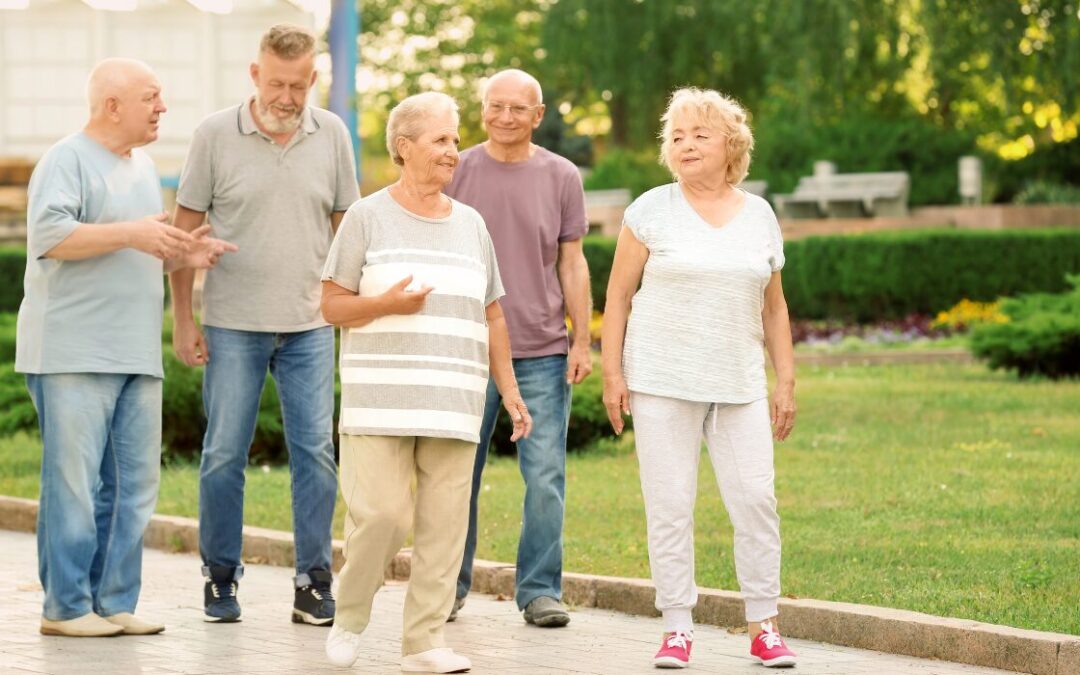Morning walk is the easiest and most efficient way for elderly people to stay active and healthy. Morning walk benefits far greater than just for one’s physical well-being—they invigorate your mind, lift your mood, and give a healthy boost for the day. An early morning walk benefits is a casual exercise that’s easy on all but the most elite level of physical fitness and can be performed nearly anywhere — in a park, on the neighborhood streets near home, or indoors in case of bad weather.
Understanding the Importance of Morning Walks in Older Age
Yes, as we get older, our bodies do change in some way. The muscles weaken, the joints hurt, and the balance isn’t as firm. Exercise is wonderful, but not everything that constitutes exercise is safe or easy for elderly citizens.
Early morning walks: the solution to everything that troubles them. They are easy on the joints, simple to incorporate into the daily routine, and leave the body supple and strong without overworking it. As a result, regular walkers among the elderly enjoy better mobility and fewer illness complaints, according to the National Institute on Aging.
Morning Walk Benefits for Older Adults
Physical activity in the form of morning walk benefits has several self-evident benefits for the elderly
- Heart Health: Walking reduces blood pressure and the risk of heart disease. The American Heart Association estimates walking at least 30 minutes per day can reduce the risk of heart disease by as much as 27%.
- Muscle and Bone Strength: Walking maintains muscle strength and bone density, which helps in preventing osteoporosis and fractures.
- Better Balance: Daily walking improves the leg’s strength and coordination and reduces the risk of falls.
- Weight Management: Walking off calories and having a healthy metabolism help with healthy weight management.
How Morning Walks Improve Mental and Emotional Health
Morning walks benefit the mind just as much as they benefit the body. They:
- Boost Mood: Walking causes the release of endorphins ( Happy Hormones), natural mood-changing chemicals that act contrary to tension or stress.
- Clear Concentration: Increased blood supply to the brain helps memory and focus.
- Help Sleep: Sun exposure during the morning helps synchronize the body’s internal clock and, as a result, sleep better.
One study in the Journal of Aging and Health determined that daily walking among the elderly had a 30% lower depression than non-walking elderly individuals.
Morning Walks and Preventing Age-Related Illnesses
In fact, daily morning walks help prevent most diseases that come with age:
- Type 2 Diabetes: Daily walking keeps blood sugar levels in check.
- Arthritis Relief: Joint mobility keeps the joints flexible and alleviates stiffness.
- Lowered Blood Pressure: Walking reduces elevated blood pressure in the long term.
- Brain Health: It has been theorized that walking can slow down memory decline and reduce dementia risks.
Social and Lifestyle Perks of a Morning Walking Routine

Walking is not just good for your body, your social and emotional well-being.
- Brings You Closer to People: Walking with a neighbor or buddy creates social bonds that promote better mental health.
- Creates Habit: Starting the day with a morning walk benefits gives a routine and sense of satisfaction.
- Maintains Independence: Staying active makes older people stay awake and energized for a longer time.
Tips to Make Morning Walks a Daily Habit for Older Adults
Some simple tips to encourage morning walk benefits as a routine among older adults are explained below:
- Start Slowly: Start with 10-15 minute short walks and gradually increase.
- Choose a Routine Time: Walking every day at the same time helps in creating a habit.
- Dress Comfortably: Proper shoes avoid injury and discomfort.
- Hydrate: Drink water before and after walking.
- Choose Safe Paths: Parks, secluded roads, or indoor paths are safe alternatives.
Conclusion
Morning walk is not exercise but a daily method of caring for your body and mind. For older persons, the morning walk benefits are clear: a healthier heart, healthier muscles, a brighter mood, and a reduced risk of disease. Moreover, this easy habit is easy to catch on with and will have a great impact on healthy aging. So get out tomorrow morning and start constructing a healthier, happier life.
FAQ’s
How long should older adults walk each morning?
Start with 10 to 15 minutes, especially if you’re a walking newbie. As your energy and stamina improve, extend your walk to 30 minutes or longer. Pace or mileage is less important than frequency.
Is walking safe for seniors with joint pain or arthritis?
Yes, it’s safe to walk in general and loosens joints and trims the stiffness. Dress comfortably and stick to flat ground. If pain worsens, speak with your doctor.
Can morning walks improve sleep quality?
Yes, in fact, morning walk benefits expose you to sunlight that regulates your body clock and tends to lead to sounder, better sleep at night.
What if the weather is bad and I can’t walk outside?
If the weather is not good, walk indoors in your house or utilize a treadmill if you have access to one. Therefore, the idea is to remain active wherever you are.

